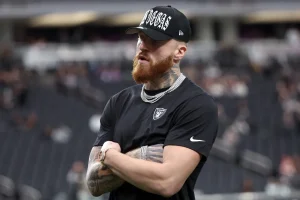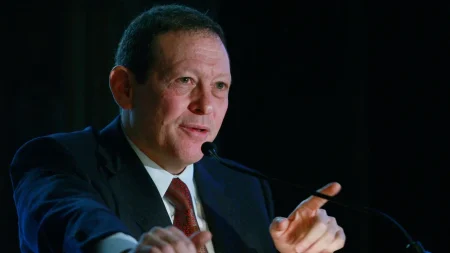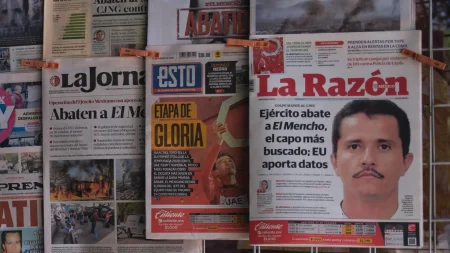A New Era of Baseball Economics: Cohen’s Record-Breaking Soto Acquisition Reshapes the Landscape
The landscape of Major League Baseball has been irrevocably altered by the seismic signing of Juan Soto by the New York Mets. A record-setting 15-year, $765 million contract, orchestrated by billionaire owner Steve Cohen, has sent shockwaves through the league and ignited a fervent debate about the escalating financial arms race in professional sports. Soto, a 26-year-old outfielder coming off a stellar season with the Yankees, becomes the focal point of a Mets franchise eager to shed its "little brother" image and challenge the established dominance of teams like the Yankees and Dodgers.
This monumental deal represents a paradigm shift in baseball economics. Cohen, whose estimated $21.3 billion net worth dwarfs those of his fellow owners, has demonstrated a willingness to leverage his financial might to an unprecedented degree. While traditional baseball economics might question the prudence of such a massive investment, Cohen’s approach transcends the conventional balance sheet. His vast wealth, accumulated through decades of success in the hedge fund industry, allows him to absorb significant financial losses in pursuit of a championship, a luxury most owners simply cannot afford.
The Mets’ acquisition of Soto underscores the growing disparity in financial resources within MLB. While teams like the Dodgers and Yankees have historically been big spenders, often fueled by lucrative television deals and substantial revenue streams, Cohen’s personal wealth presents a unique and formidable challenge. The Dodgers’ recent World Series victory against the Yankees, built on significant offseason investments in players like Shohei Ohtani and Yoshinobu Yamamoto, highlights the effectiveness of a high-spending strategy. However, even their substantial resources pale in comparison to Cohen’s seemingly limitless financial capacity.
MLB’s absence of a salary cap, a stark contrast to other major professional sports leagues, further empowers owners like Cohen to pursue talent aggressively. While the league’s "competitive balance tax" attempts to curb excessive spending, it has proven more of a nuisance than a deterrent for Cohen, whose financial resources allow him to easily absorb the penalties. The Mets’ projected payroll, exceeding $300 million, underscores Cohen’s commitment to assembling a winning roster, regardless of the associated costs. This financial asymmetry raises concerns about competitive balance within the league and the potential for a widening gap between the "haves" and "have-nots."
Cohen’s arrival as Mets owner in 2020 signaled a new era for the franchise. His stated ambition to win a World Series within three to five years, coupled with significant investments in player acquisitions, demonstrates a clear intent to transform the Mets into a perennial contender. The Soto signing, the crown jewel of Cohen’s spending spree, solidifies his commitment to building a championship-caliber team, even if it means incurring substantial financial losses in the short term. The Mets’ recent playoff appearances, a testament to Cohen’s investment strategy, suggest that his approach, while financially unconventional, may ultimately yield the desired results.
The Yankees’ unsuccessful attempt to retain Soto, despite offering a substantial $760 million contract, highlights the paradigm shift Cohen has initiated. His willingness to outspend even the historically deep-pocketed Yankees signals a new era of competition where financial muscle plays a more significant role than ever before. This aggressive strategy has resonated with Mets fans, who are energized by the prospect of a franchise finally willing to challenge the dominance of their crosstown rivals.
The long-term implications of Cohen’s spending spree remain to be seen. While the immediate impact is evident in the Mets’ improved roster and heightened expectations, the sustainability of this model remains a question mark. Can Cohen’s personal fortune continue to underwrite the Mets’ substantial financial losses? Will the league implement measures to address the growing disparity in financial resources among its teams? These questions will shape the future of baseball economics and determine whether Cohen’s audacious gamble ultimately pays off.
The Soto signing has not only elevated the Mets’ profile but also ignited a broader discussion about the role of money in professional sports. As the financial stakes continue to escalate, the competitive landscape of baseball is undergoing a fundamental transformation. Cohen’s willingness to defy conventional wisdom and leverage his immense wealth has set a new precedent, forcing other teams to re-evaluate their strategies and consider the implications of this new economic reality. The future of baseball may well be defined by this evolving financial dynamic, with Cohen’s Mets at the forefront of this paradigm shift. Only time will tell if his audacious gamble will result in the ultimate prize – a World Series championship – and justify the unprecedented financial commitment he has made to the franchise.









